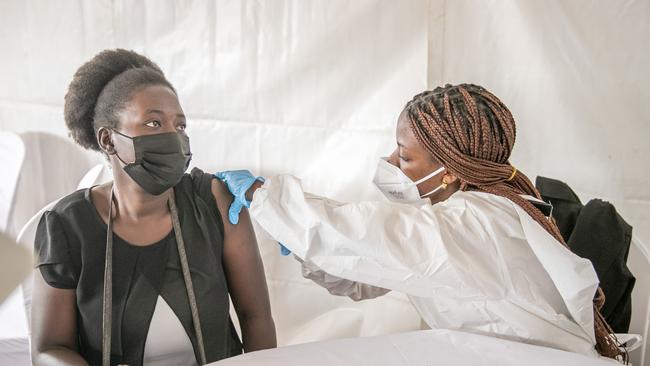Covid-19: Europe braces for new outbreak
Fears that a South African rugby match at Twickenham a week ago could be a super-spreader event.

Masks, travel bans, increased testing and a concerted booster vaccination drive have been reintroduced across Britain to prepare for the Covid-19 variant Omicron as fears that a South African rugby match at Twickenham a week ago could be a super-spreader event.
European countries have also closed their borders to arrivals from southern Africa, where the variant was first detected less than a week ago.
A lot of Europe had already been operating under tightened coronavirus countermeasures such as mask wearing, and Austria is in the midst of a national lockdown because a recent spike in Delta cases.
On Saturday 61 passengers from two flights from South Africa landing in The Netherlands tested positive to Covid-19 of which several were believed to be the Omicron variant. At that stage the passengers had only to be double vaccinated or show a negative test to be allowed to fly, indicating that some of the Omicron virus passengers had been double vaccinated.
Omicron cases have surfaced Germany, the Czech Republic and Italy. In Belgium an unvaccinated woman found to have Omicron had been travelling via Turkey and Egypt.
Switzerland, which has no Omicron cases yet, has banned arrivals from countries where Omicron has been found, including Britain. Australia is now likely to be added to the banned list after the discovery of two cases on the weekend.
As of Sunday, one person from the central English city of Nottingham and one person from Brentwood in Essex, had been confirmed to have Omicron.
British testers were urgently contacting contacts of the two, as well as conducting surge testing in African communities in East London and in and around the area of the Twickenham stadium, where South Africa played England in front of a capacity 80,000 crowd a week ago.
British Prime Minister Boris Johnson announced on Saturday that wearing masks on public transport and in shops would be mandatory, but there was immediate push back from a fatigued public who had become used to relatively normal life without them. There was initial resistance to the request as the early impact of Omicron was uncertain with many early cases asymptomatic.
“This is a stark reminder that we are not yet out of this pandemic,” Health Secretary Sajid Javid said, urging the public to get follow-up booster jabs of vaccines.
The early Omicron cases in South Africa were reported to have suffered several days of extreme fatigue, but there was no reported spike in hospitalisations.
Mr Johnson said reimposing the measures was “the responsible course of action to slow down the seeding and the spread of this new variant and to maximise our defences so that we protect the gains we’ve worked for so hard”.
The EU followed Britain’s lead and has closed the border to nonresident arrivals from Malawi, Mozambique, Zambia, Angola, South Africa, Botswana, Lesotho, Eswatini, Zimbabwe and Namibia.
British residents from the red list countries will be allowed to return but need to undergo 10 days hotel quarantine.
In Israel, 50 African countries have been put on a restricted list.
Israelis residents from any of the banned countries who are vaccinated have to undergo a three-day mandatory quarantine while unvaccinated residents have a seven-day quarantine.
South Korea and Thailand restricted flights from eight countries, as did the US, Brazil, Canada and Saudi Arabia.



